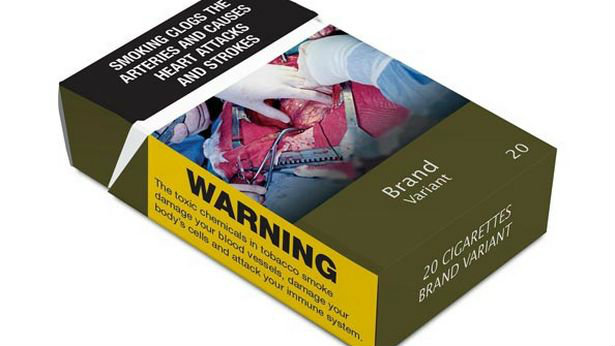The deluge of evidence cited by global tobacco companies in response to a recent government consultation on standardised packaging for cigarettes was either ‘low quality’ or ‘off-topic’, according to new analysis published today in BMJ Open from researchers in our Department for Health.
By analysing consultation responses, the study, from the Tobacco Control Research Group and the UK Centre for Tobacco & Alcohol Studies, found that much of the ‘evidence’ cited by tobacco companies should be viewed sceptically. Of the 77 pieces of evidence cited by four global tobacco companies in their consultation responses:
- Only 17 actually addressed the impact of standardised packaging on smoking;
- None were published in peer-reviewed journals, an important marker of scientific quality;
- 14 of the 17 (82 per cent) were either commissioned by or linked to the tobacco industry;
- In many cases this link was not clearly stated by the tobacco companies in their consultation responses.
This study, funded by Cancer Research UK, may inform the current independent review of standardised packaging, chaired by Sir Cyril Chantler.
The Chantler Review, due to publish its findings in March 2014, follows a lengthy delay in decision-making by the Government, who cited a need for more evidence – a key tobacco industry argument – as their primary reason for adopting a ‘wait and see’ approach to the policy.
Prior to the Government’s consultation, an independent systematic review had concluded there was ‘strong evidence’ that standardised packaging would reduce the appeal of tobacco products and increase the impact of health warnings. Importantly, the paper published today shows that the quality of the systematic review evidence supporting standardised packaging is significantly greater than the quality of the industry evidence opposing it.
Lead author Dr Jenny Hatchard explained: “The contrast between the quality and relevance of tobacco industry evidence versus the evidence in the systematic review is stark.
“This underlines the need for health policymakers to be alert to the provenance of evidence cited by corporate actors who oppose regulation which aims to benefit public health.”
Professor Anna Gilmore, expert in tobacco control at our University and the UK Centre for Tobacco & Alcohol Studies who co-authored the research, said: “Historically, the tobacco industry manufactured evidence to cast doubts on the health impacts and addictiveness of its products. Now it is manufacturing evidence on the impacts of policies that could threaten its profits.
“By paying for evidence which created doubts about the impact of standardised tobacco packaging the industry successfully delayed the policy.
“As a result, between July 2013, when the Government put plain packaging on hold, and March 2014, when the Chantler Review will be completed, an additional 148,554 children (4,951 classrooms full) will have started smoking.”
Alison Cox, Cancer Research UK’s head of tobacco policy, added: “Once again, the tobacco industry has employed underhand tactics to put its profits before the nation’s health.
“This report proves that we need more transparency about sources of evidence to stop the tobacco industry from using its vast resources to influence policy making.”
“During the final evidence review it’s vital that the Government sees past the deluge of misleading information from the tobacco industry and only considers high quality, relevant evidence."
A key aim of standardised packaging is to reduce smoking uptake by young people: two thirds of adult smokers report that they started smoking before the age of 18. Following the Chantler Evidence Review, legislation to allow the roll out of standard packs could be in place before the next election.
To download the BMJ Open research paper, ‘A critical evaluation of the volume, relevance and quality of evidence submitted by the tobacco industry to oppose standardised packaging of tobacco products’, see http://www.bmjopen.bmj.com/lookup/doi/10.1136/bmjopen-2013-003757.
If you found this interesting, you might also enjoy:
Extent of tobacco industry’s lobbying tactics unveiled by new paper - February 2014
Study finds ‘serious flaws’ in EU report on illicit tobacco - January 2014

